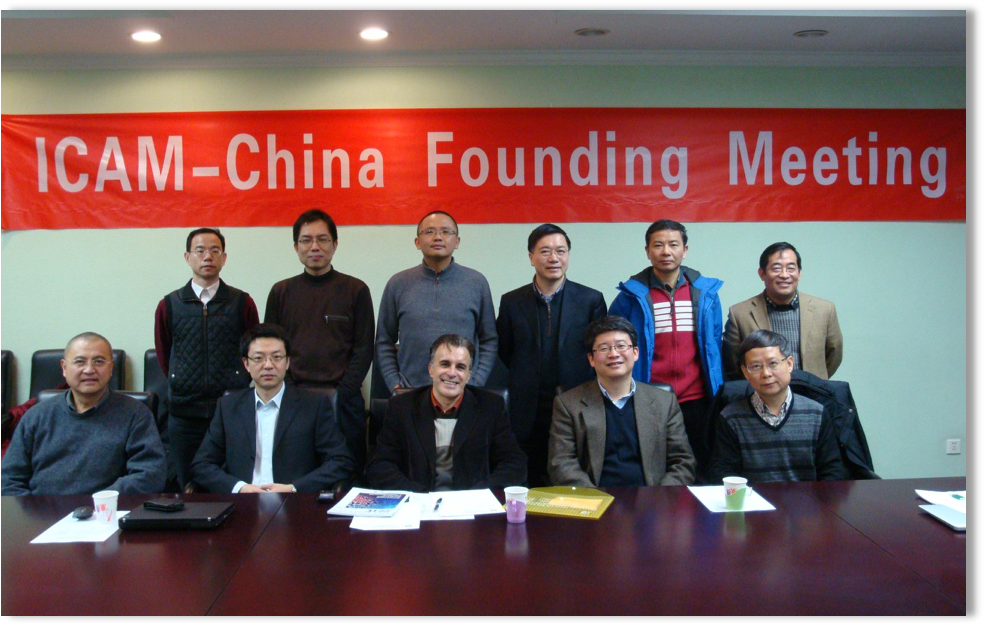ICAM
The Institute for Complex Adaptive Matter(ICAM)is an organization devoted to the research into major new research themes in complex adaptive matter which represents for soft, hard, and living matter exhibiting emergent phenomena, and to collaborative research and scientific training that links together scientists in different fields and different institutions. It adopts an open distributed experiment-based dynamic multi-institutional partnership manner allowing the research to transcend traditional disciplinary boundaries and adapt quickly as new ideas and opportunities arise. ICAM draws from the chemical, physical and biological viewpoints on its research themes.
Established in March 1999, ICAM became a Multidisciplinary Research Program of the University of California since 2002, with nine founding branches. In 2004, it established the International Institute for Complex Adaptive Matter (I2CAM) as an integral part of ICAM to continue and expand ICAM’s international scientific and educational activities. Since then ICAM-I2CAM has grown rapidly to its present constellation of 72 branches: 35 in the US, 17 in Europe, 14 in Asia, 1 in Canada, 1 in Australia, 2 in the Middle East, 2 in South America; and 4 partner institutions. Altogether, ICAM links 112 leading centers of complex materials research worldwide.
ICAM’s integrated scientific and educational program includes exploratory workshops, symposia, fellowships, and research and educational networks. It has a well-developed communication, governance and advisory structure. Moreover, at each branch there is in turn an interdisciplinary grouping at the local level – from materials science, physics, chemistry, and biology, from theory and experiment.
ICAM website: https://www.icam-i2cam.org
ICAM-China
ICAM-China was established in January 2012, with nine founding branches. Until 2020, ICAM-China has grown into an interdisciplinary grouping with twenty-three nodes – from physics, chemistry, biology materials science, from theory and experiment. Our goals are to coordinate more effective participation of Chinese branches in ICAM activities, provide a platform for cooperation among quantum matter, soft matter and life science and gather more resources to support ICAM seminars and schools in China.

Front row: Shuheng Pan, Minghui Kong, Piers Coleman, Hong Ding, Zhengyu Weng
Back row: Haijun Zhou, Ming Li, Xi Dai, Haihu Wen, Jian Zi, Shouzhu Zhang

 YOUR LOCATION:
YOUR LOCATION: